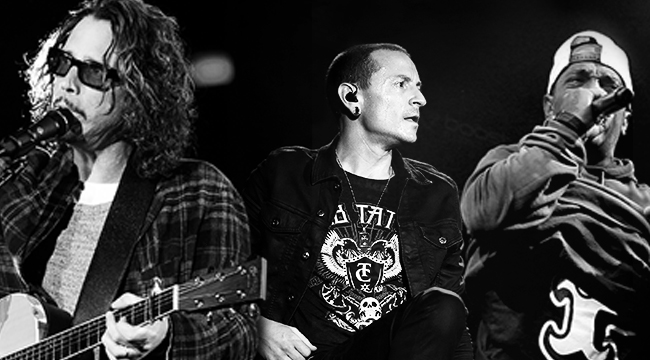
It’s a simple fact of life that at a certain point, all of us will eventually meet our end. Sadly, understanding that this inevitable outcome is in store doesn’t help prepare us for the shock that comes with the news that people and figures we love and admire have moved on. In 2017, we lost a great deal of some of the most important and impactful musicians from a wide berth of different genres. Though they are longer here to entertain us, to write and record new musical gifts for us all to enjoy in the years and decades to come, their memories will live on every time we push play on a cherished song. Let’s raise a toast to them one more time as the year comes to a close.
Tom Petty
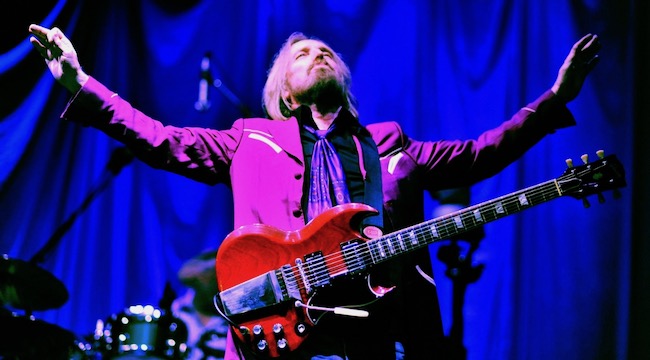
Early in 2017, Tom Petty warned that his latest tour with the Heartbreakers might be his last. Little did he or the rest of us know the prescience of that statement. Petty wrapped up his final performance at the Hollywood Bowl with his fabled band then died of a heart attack just a couple of days later. As our own Steven Hyden wrote in his touching elegy, “Tom Petty’s music truly achieved the ubiquity of a public utility — you can hear it in bars, cars, supermarkets, sports stadiums, gas stations, movies, TV shows, and pretty much everywhere else…His songs are in the atmosphere.”
Chris Cornell
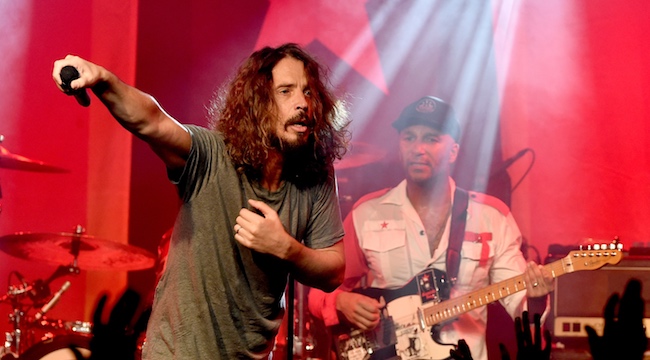
Of all the losses in the music world this year, Chris Cornell’s death was perhaps the most shocking. Shortly after playing a gig with his iconic group Soundgarden while in Detroit in May, Cornell retired to his hotel room and took his own life. It was a tragic end for one of the most gifted singer’s and songwriters of his heralded generation. That otherworldly voice that propelled tracks like “Black Hole Sun,” “Outshined,” “Fourth Of July,” and “Cochise” will reverberate through eternity.
Chuck Berry
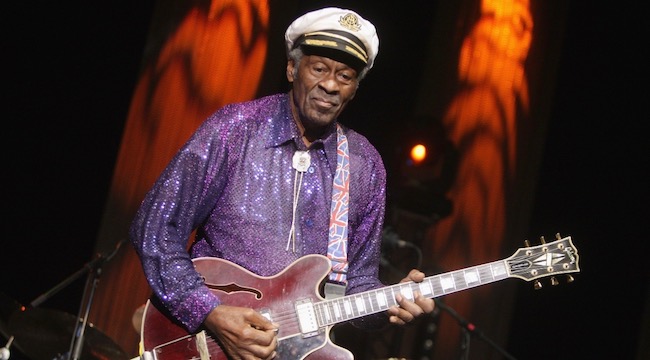
As John Lennon once famously said, “If you had to give rock and roll another name, you might call it Chuck Berry.” The size of his legacy can’t be overstated. Elvis might be “The King,” but Chuck Berry is undoubtably the “Father Of Rock Rock And Roll.” In 2017, at the age of 90, Berry was finally called into the afterworld, but not before giving us all a parting gift; his first album of new music in decades. Titled Chuck, it’s a fitting last statement by one of the greatest musicians and writers of the 20th century, proving once and for all the power of his pen, and the mightiness of his musicianship.
Prodigy
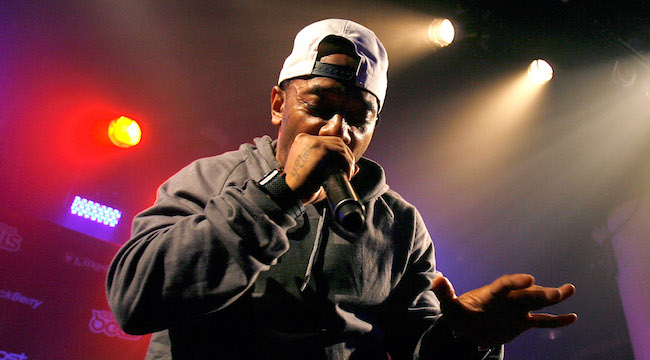
Mobb Deep is one of the greatest duos in the history of rap. Hands down, no question or argument needed. Their second album The Infamous is an unmitigated masterpiece, while the follow-up Hell On Earth is a stone-cold classic. While Havoc held it down with the beats, Prodigy was always game to add menace and intrigue to nearly ever record he hopped on. His death at the early age of 42 was entirely too premature.
Chester Bennington
Chester Bennington’s suicide coming so quickly on the heels of the death of his friend Chris Cornell was an especially heavy blow. Bennington had long battled depression and took his life in his home on July 20. In the wake of his loss, Bennington’s Linkin Park bandmates spoke for many when they wrote, “Our hearts are broken. The shockwaves of grief and denial are still sweeping through our family as we come to grips with what has happened.” Adding, “You touched so many lives, maybe even more than you realized.”
Malcolm Young
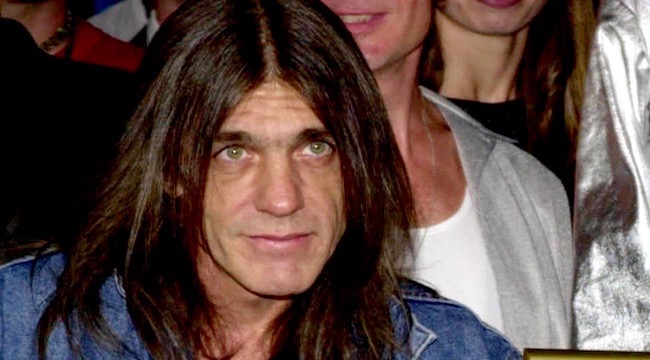
Malcolm Young was always the quiet rock of AC/DC. Never as eye-catching as either his brother Angus or frontmen Bon Scott and Brian Johnson, Malcolm was content to bring the thunder from near the back of the stage, laying down the heavy, sonic framework for some of the most high octane rock and roll tracks ever produced. A battle with dementia, one that eventually took his life, kept him off the road and out of the studio in recent years, but his legacy as one of the all-time great rhythm guitarists can’t be denied or hardly forgotten.
Lil Peep
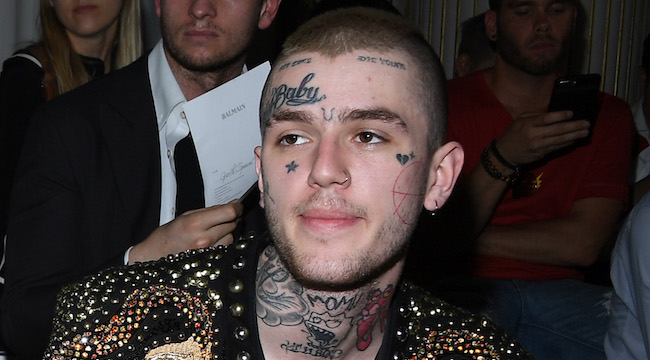
Lil Peep’s death at the age of just 21 following an overdose of prescription medication was as shocking as it was tragic. In August of this year, Peep made waves amongst the rap-loving emo collective with his debut studio album Come Over When You’re Sober Pt. 1 and seemed poised to do great things in the years ahead. Sadly, we can only guess what might have been.
Walter Becker
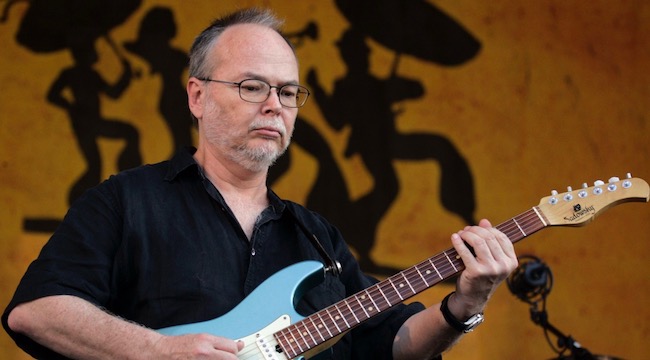
Through the middle portion of 2017, unbeknownst to many, Steely Dan founder and guitar wizard Walter Becker was diagnosed with an extremely aggressive form of cancer. He battled against the disease, but shortly after his band hit the stage without him at the Classic East and Classic West concerts in New York and Los Angeles respectively, he died. Becker’s legacy will remain that of a studio perfectionist. Someone who ruthlessly pursued audio and technical brilliance with a passion that belied his cool exterior. He remains an inspiration to music geeks, contemporary jazzbos, and gear weirdos the world over.
Gord Downie
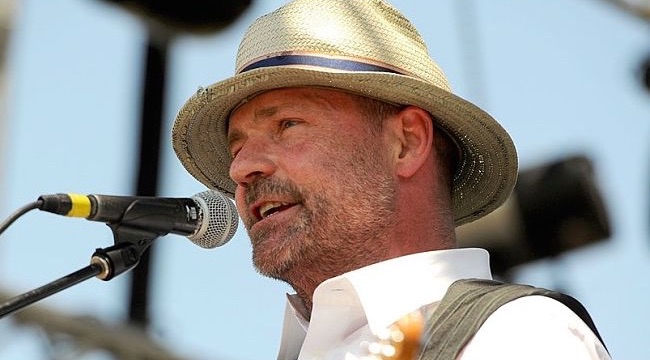
American audiences for the most part only really got to know and love Gord Downie in the final year of his life, which is really a damn shame. As the frontman of the Tragically Hip, Downie has remained for the past three decades a Canadian icon. When his band announced a final run of dates together last year following his cancer diagnosis, the demand for tickets was extraordinary. The Canadian Prime Minister, Justin Trudeau, even showed up to the band’s final performance and later gave a tearful tribute after his passing, calling Downie, “One of the very best of us.”
Fats Domino
Fats Domino was as integral to the city of New Orleans as fresh-brewed cups chicory coffee and steaming bowls of sausage-laden gumbo. For decades, he refused to even leave his beloved city, even after Hurricane Katrina left it nearly decimated. The sound he beat out on his piano reverberated across the world, bringing the flavors of New Orleans to locales as far as London and Hamburg, setting the blueprint for early rock and roll nearly everywhere he was heard.
Greg Allman

For nearly five decades, through lineup changes, multiple extended live residencies, new albums, and unspeakable tragedies, Gregg Allman remained the heart and soul of his namesake group, the Allman Brothers Band. The road wasn’t easy, but Gregg navigated the treacherous switchbacks of life as a rock star better than anyone could have expected. Before he passed at the age of 69 in his home in Richmond Hill, Georgia, he could look back on his musical legacy and be supremely proud of what he left behind. Don’t just take my word for it. As he wrote in his memoir, My Cross To Bear, “When it’s all said and done, I’ll go to my grave and my brother will greet me, saying, ‘Nice work, little brother—you did all right.’”
Glen Campbell
In 2011, Glen Campbell revealed to the world that he’d been diagnosed with Alzheimer’s. The country music legend embarked on one, final goodbye tour then receded into the shadows, passing away at the age of 81 in Nashville. Campbell’s legacy as one of the pre-eminent songwriters of his generation doesn’t need to be re-iterated, but I’ll do so anyway. Songs like “Gentle On My Mind,” “By The Time I Get To Phoenix,” and of course “Wichita Lineman,” remained etched into the immortal tablet of country greatness.
Grant Hart
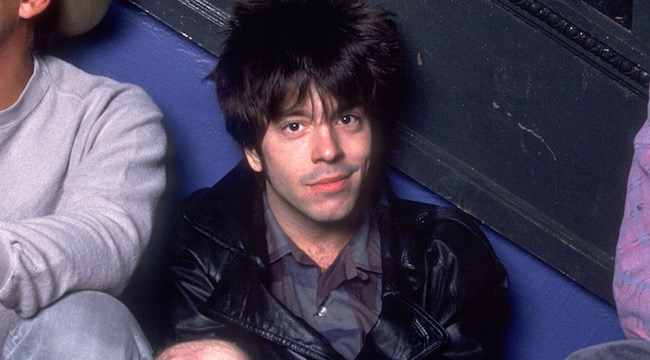
Hüsker Dü played loud and they played hard. At the center of that frenzied maelstrom of sound that hit your ears with the fury of a blustery Minnesota ice storm was the group’s drummer Grant Hart. Listen to Zen Arcade and 1985’s New Day Rising for all the evidence you need of his otherworldly percussive ability and songwriting. As his Dü bandmate Bob Mould said in the aftermath of his death, “Grant Hart was a gifted visual artist, a wonderful story teller, and a frighteningly talented musician. Everyone touched by his spirit will always remember.”
Charles Bradley
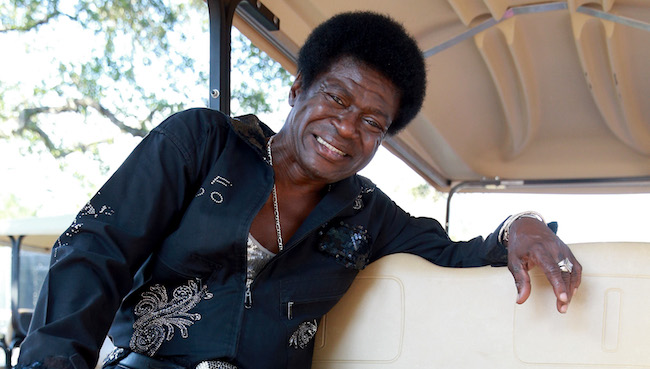
Charles Bradley’s life is a lesson in adversity. For years, the soul singer clung to the fake it ’til you make it mantra, playing clubs and lounges as a James Brown impersonator, until finally, in the 21st century, he became a star all his own. Bradley’s voice ached with emotion, quaked with intensity, and shook with fury. His rendition of Black Sabbath’s “Changes” is definitive if you ask me. The only shame is that he wasn’t given more time in the spotlight to shine before losing his battle with stomach cancer this fall.
Butch Trucks
Sadly, Gregg Allman wasn’t the only member of the Allman Brothers Band to pass on in 2017. The group’s rock-solid drummer Butch Trucks took his own life on January 24. I could write at length about his skill and acumen as a percussionist, or you could throw on At Fillmore East and hear it for yourself. On a personal note, I interviewed Butch at length for my book Lighters In The Sky, and found him to be someone deeply in love with music and the people who he spent his life creating it with. He will be deeply missed.
Clyde Stubblefield
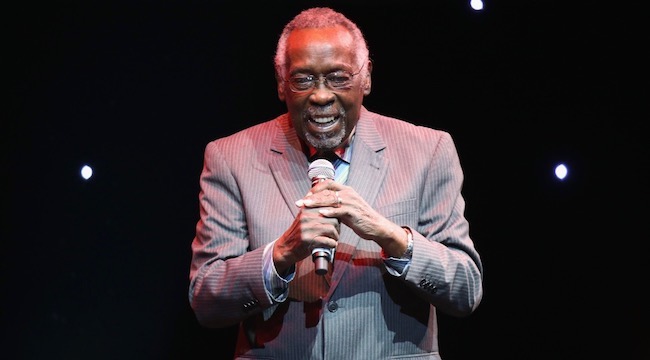
If all Clyde Stubblefied ever did was lay down the breakbeat on James Brown’s classic “Funky Drummer” he would’ve sealed his bid on immortality. As many known, Stubblefields’ 10 hits and 2 cymbal lifts have gone on to become one of the most sampled pieces of music in history, providing the backbone to hits like “Mama Said Knock You Out,” by LL Cool J, “Freedom ’90” by George Michael and “Let Me Ride” by Dr. Dre to name a few. Of course, Stubblefied was far more than a break, and he worked hand in hand with the Godfather of Soul on some of his greatest all-time compositions.
David Cassidy
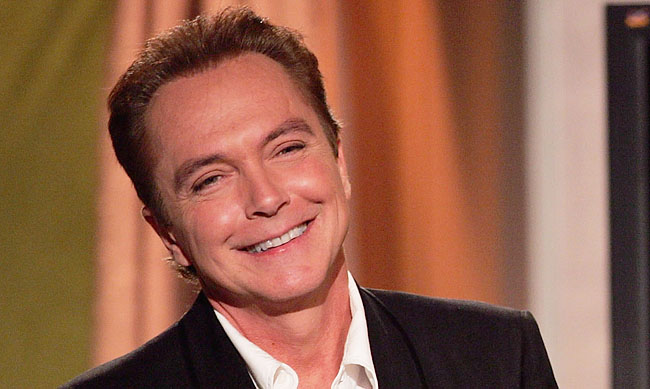
Early in the year, David Cassidy revealed that he’d been recently diagnosed with dementia. Though the prospects for his prolonged health were grim, it still came as an incredible shock when he died just nine months later of liver and kidney failure. Cassidy was the classic teen idol who was so much more than the wink and the smile that made both girls and boy’s hearts swoon as a member of The Partridge Family. He parlayed his good looks into a viable musical career, selling millions of albums in the process, while drawing comparisons to no less than Mick Jagger at the very height of his popularity.






